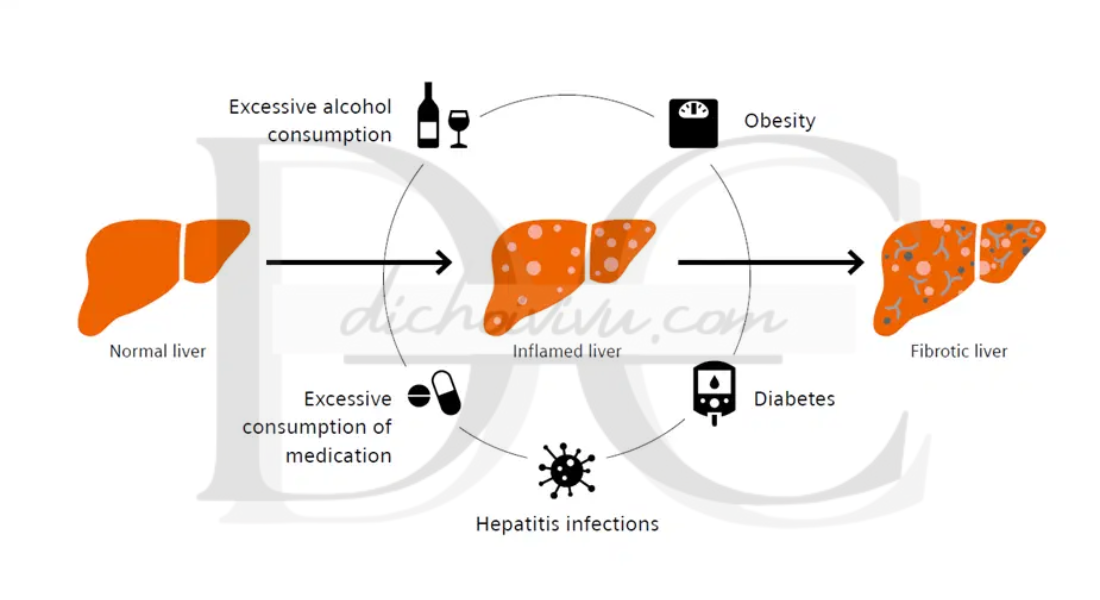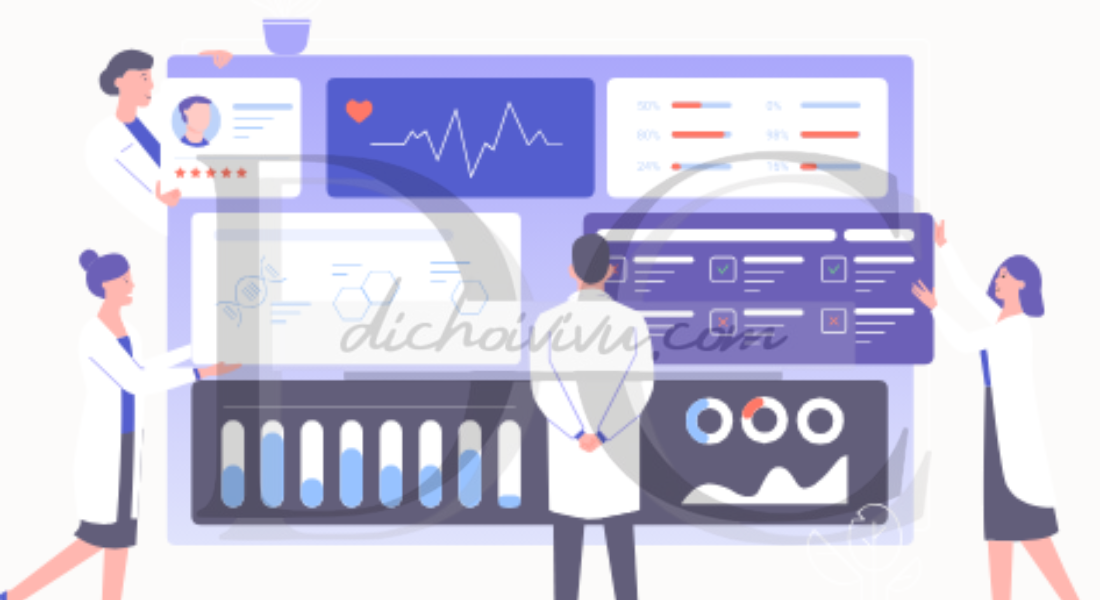How AI is Revolutionizing Disease Prediction: The Future of Healthcare
Introduction: The Role of AI in Disease Prediction
Artificial Intelligence (AI) is revolutionizing healthcare by enhancing disease prediction accuracy, allowing for early detection and proactive treatment. AI for disease prediction is not just a futuristic concept—it’s happening right now, with numerous breakthroughs in machine learning, deep learning, and big data analytics. These technologies are reshaping how healthcare professionals predict, diagnose, and manage diseases, ultimately improving patient outcomes and reducing healthcare costs. In this article, we will explore the various ways AI is being used for disease prediction and why it is considered a game-changer in modern healthcare.
The Power of AI in Disease Prediction
AI for disease prediction works by analyzing vast amounts of medical data, identifying patterns and correlations that human doctors might miss. Machine learning models, for example, are trained using historical health records, genetic data, and even lifestyle information to forecast disease risk and outcomes. Whether predicting cancer, cardiovascular diseases, or neurological disorders, AI tools can provide insights that help doctors make better-informed decisions.
One of the primary reasons AI is so powerful in predicting diseases is its ability to process large datasets quickly and accurately. Traditional methods of diagnosis and prediction often rely on limited data and subjective judgment, leading to potential errors. AI, on the other hand, can consider a wide range of variables and generate highly accurate predictions, often outperforming human doctors in certain areas.
Key AI Technologies Used in Disease Prediction
- Machine Learning Algorithms
Machine learning, a subset of AI, plays a significant role in disease prediction. Algorithms can be trained on large datasets, learning to recognize patterns and predict outcomes. For example, AI systems can predict the likelihood of a patient developing conditions like diabetes or Alzheimer’s disease based on their medical history, genetic information, and lifestyle factors. - Deep Learning
Deep learning, a more advanced form of machine learning, involves neural networks that mimic the human brain’s structure and function. This technology is particularly effective for analyzing medical imaging, such as X-rays, MRIs, and CT scans. AI-powered deep learning models can detect early signs of diseases like cancer or heart disease by identifying subtle abnormalities in medical images that might be overlooked by human eyes. - Natural Language Processing (NLP)
NLP enables AI systems to analyze unstructured data, such as doctor’s notes, clinical records, and research articles. This allows AI models to gain a more comprehensive understanding of a patient’s health condition and predict the likelihood of developing specific diseases. NLP helps doctors by providing valuable insights from a variety of sources, improving diagnostic accuracy. - Predictive Analytics
Predictive analytics leverages data from multiple sources, including electronic health records, patient monitoring systems, and genetic testing, to predict disease risk. These models help in early detection of conditions like chronic kidney disease. Hypertension, and cancer, allowing for timely intervention and personalized treatment plans.
Applications of AI for Disease Prediction
AI for disease prediction has a wide range of applications across different healthcare fields. Let’s explore some notable examples:
- Cancer Prediction and Early Detection
AI has shown incredible promise in predicting various types of cancer, including breast cancer, lung cancer, and prostate cancer. By analyzing medical images and patient data, AI can identify early signs of cancer, sometimes even before symptoms appear. AI models can also assess the genetic predisposition of individuals, allowing for targeted screening and personalized prevention strategies. - Cardiovascular Disease Prediction
AI can predict the likelihood of cardiovascular diseases, such as heart attacks and strokes, by analyzing data from blood tests, ECGs, and medical imaging. Machine learning algorithms can assess a person’s risk factors, including cholesterol levels, blood pressure, and family history, to predict heart-related events. Early detection allows for preventive measures, such as lifestyle changes and medications, to be implemented before a major health crisis occurs. - Diabetes Prediction
AI is being used to predict the risk of Type 2 diabetes by analyzing patient data, including weight, diet, physical activity, and family history. AI-driven tools can also track changes in blood glucose levels and other biomarkers to predict the onset of diabetes. By identifying at-risk individuals early, doctors can intervene with lifestyle modifications and medications to prevent the disease’s progression. - Neurological Disease Prediction
AI is also being applied to predict neurological diseases, such as Alzheimer’s, Parkinson’s, and multiple sclerosis. Deep learning algorithms analyze brain scans and genetic data to predict the likelihood of developing these conditions. Early detection is crucial for slowing the progression of neurological diseases and providing patients with early-stage treatments that improve their quality of life.
Benefits of Using AI for Disease Prediction
- Early Diagnosis and Intervention
The most significant advantage of AI-driven disease prediction is its ability to detect diseases at an early stage, even before symptoms appear. Early diagnosis allows for timely treatment, which can dramatically improve the chances of successful outcomes. For example, early detection of cancer can increase the survival rate, as it can be treated more effectively in the initial stages. - Personalized Treatment Plans
AI tools can analyze a patient’s unique genetic and medical data to create tailored treatment plans. This ensures that the treatment approach is more effective and appropriate for the individual, improving outcomes and reducing the risk of adverse effects. Personalized medicine has the potential to transform healthcare by offering more precise and targeted therapies. - Reduced Healthcare Costs
By predicting diseases early and enabling preventive care, AI can help reduce the overall cost of healthcare. Prevention is often more cost-effective than treatment, especially for chronic conditions. AI can help allocate resources more efficiently, ensuring that patients receive the care they need before their conditions become more serious and expensive to treat. - Improved Accuracy and Efficiency
AI systems can process data much faster than humans and can often identify patterns that doctors might overlook. This increased accuracy leads to better diagnoses and more informed decision-making. AI can also automate routine tasks, such as analyzing test results or scheduling appointments, allowing healthcare professionals to focus on more complex tasks and patient care.
Challenges of AI for Disease Prediction
While AI holds great promise for disease prediction, several challenges need to be addressed:
- Data Privacy and Security
AI systems rely on large amounts of personal health data, raising concerns about data privacy and security. Ensuring that patient data is protected from breaches is crucial to gaining public trust in AI-driven healthcare solutions. - Ethical Considerations
There are ethical concerns regarding the use of AI in healthcare, particularly in terms of decision-making. AI systems are only as good as the data they are trained on, and biases in the data could lead to incorrect predictions or unfair outcomes. It’s essential to ensure that AI models are transparent, explainable, and unbiased. - Integration with Existing Healthcare Systems
Integrating AI-driven disease prediction tools into existing healthcare infrastructures can be challenging. Many healthcare providers still rely on traditional methods and may be hesitant to adopt new technologies. It will take time and investment to ensure that AI tools are compatible with existing systems and workflows.
The Future of AI in Disease Prediction
The future of AI for disease prediction looks promising. As AI technologies continue to evolve, we can expect even more accurate predictions, faster diagnoses, and more personalized treatments. The integration of AI into healthcare will likely become more seamless, with AI-driven tools becoming a standard part of medical practice. Moreover, with advancements in data collection methods. Such as wearable devices and mobile health apps, AI will have access to even more data, improving its predictive capabilities.
In conclusion, AI is undoubtedly shaping the future of disease prediction. With its ability to analyze vast amounts of data, identify patterns, and provide personalized insights, AI has the potential to revolutionize healthcare and save millions of lives. By embracing AI-driven technologies, healthcare providers can ensure better, more efficient care. Improving the overall quality of life for patients worldwide.
Conclusion
AI for disease prediction is an exciting and transformative field with the potential to revolutionize healthcare. From cancer and cardiovascular diseases to diabetes and neurological disorders, AI’s ability to process vast amounts of medical data allows for earlier, more accurate predictions. This early detection leads to timely interventions, personalized treatment plans, and better overall health outcomes. While challenges remain, particularly in terms of data privacy and integration. The future of AI in healthcare is bright, offering the promise of improved patient care and more efficient healthcare systems.

